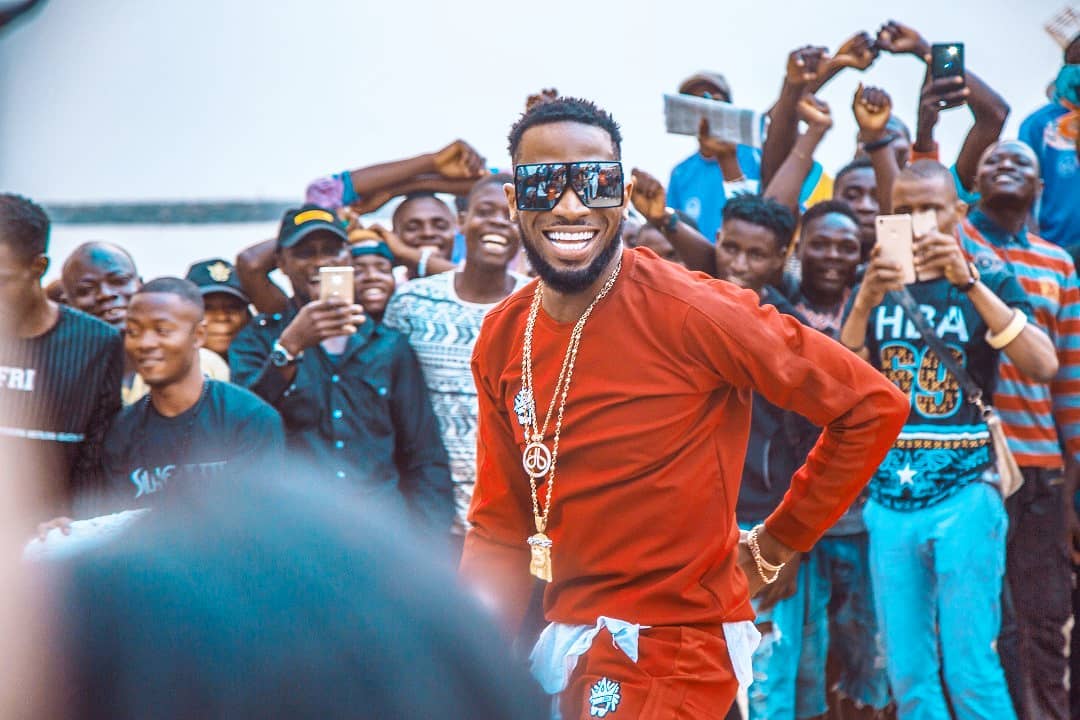
The biggest musical revolution is currently taking place on the African continent. In countries like South Africa, Nigeria, Ghana, Angola and Mali urban club music blends in with traditional styles. In parallel, European cities like London, Paris and Lisbon are closing up with their own unique take on the African music innovations.
Canadian rapper Drake broke all records in 2016 when his song "One Dance", together with the Nigerian singer Wizkid, was streamed over a billion times worldwide. Drake was already a world-famous rapper with a number of pop hits refined with platinum. But the knack of "One Dance" was precisely his collaboration with Wizkid, who is one of the biggest pop stars in West Africa, and whose music videos already had hundreds of millions viewer ratings on YouTube before the release of "One Dance". Drake not only achieved a world hit with the song, but above all, the feat of expanding his audience around Africa: millions of African Drake fans cannot be mistaken in the future either.
Wizkid's guest appearance is the parade example of how important the West African afrobeats movement, as well as the sounds from South Africa and Angola have become for the rest of the pop world - an energetic collision of hip-hop, afropop, house music and dancehall from cities like Lagos in Nigeria, Accra in Ghana, Luanda in Angola and Jo´burg in South Africa. For years African music has been marketed as exotic music in the Northern hemisphere.
It started in the seventies with Fela Kuti or Manu Diabango, followed by traditionalist, folkloric sounds on "World Music" compilations. Or, in the 1980s, albums such as Paul Simon's "Graceland", where artists from the West invited African musicians to guest performances. American superstar Beyoncé also took a short look to Africa some time ago to be inspired by fashion, dance and music.
Afropop worldwide
What is happening right now with Wizkid, Davido or Mr.Eazi, however, follows a different pattern: there is a new generation of African artists who are not just reinterpreting Western styles for young African audiences, the sounds and the associated videos are also closely linked with international pop culture. In many Sub-Saharan African countries, singers, rappers and charismatic pop stars such as Davido, Wizkid, Tekno, Mr. Eazi, Black Coffee, Cabo Snoop, D´Banji or Iyanya are just as popular as Drake, Pharrell Williams or Rihanna. Music trends from the United States, Jamaica and Trinidad are embedded by these young artists in a regional way and thereby completely reinvented.If you click through some of these songs of this movement on the internet (showing Youtube viewing figures, of which European pop artists can only dream of), you immediately realise that if this new pop can be successful in the world's most important music market, the United States, it can be big in the rest of the world too. Songs like Eugene's and Mr. Eazi's "Dance for Me" or Patoranking's "No Kissing Baby" are mostly sung in English but sound like they´re made for the American charts.
The music videos too appeal to a global pop audience. Status symbols sparkle as in the videos of American rappers. But rhythmically, the current West African, South African or Angolan sound is far more advanced than its American or European counterpart. Diverse regional influences are blended into the complex grooves that distinguish West African or Southern African music from the rest of the world. And so Africa's complex beats between electronic dance music, r 'n' b and hip hop embody a hopeful new way out of the increasingly limited possibilities of traditional genres.
Afrobeats however is not without its critics. The genre got tagged with a confusing moniker which associates the newer genre with “Afrobeat”, the jazz and afro-funk genre created by Fela Kuti in Nigeria in the 1970s. In contrast, modern afrobeats’ style of music, which are autotune-heavy, electro-hip hop with catchy throwaway hooks represent the sound of the African millennials, produced sharing on social media networks and heavy rotation on radio.
The music of Fela Kuti, known by songs that lasted up to twenty minutes and usually having an important social message, could not be farther away from the sound of today in that regards. So for many African music fans associating the two genres is close to blasphemy. Nonetheless, today’s afrobeats have been dominating the clubs and radio airwaves of Africa for several years now, with new markets and listeners to excite in other parts of the world.
A young continent
Demographics are also likely to play a key role in the boom of today's African pop music. While in populous Europe pop culture is predominantly nostalgic, in many African countries - where the average age in six out of ten countries is under 24 – are a happy part of the digital future. The global multi-millionaire careers that some African artists have started make many others courageous. After all, it has never been easier to publish music. A smartphone is enough to record a song, to produce the melodies and beats, and to upload the result as a music video on Youtube, making it accessible to a global public. In addition to Drake, other American rappers have long recognised these signs of a tidal change. Kanye West already signed the Nigerian singers D'Banj and Don Jazzy for his label in 2011, the South African rapper AKA released on the label Roc Nation, the label of Beyoncé's husband Jay Z.
The success of Wizkid, Drake and others is also reflected in the impressive growth figures of the African music industry. In Kenya, South Africa and Nigeria, the most economically powerful nations of the continent, as well as in many other African countries, a new, digitally networked, urban middle class has developed over the last few years. This audience is mirroring the inhabitants of the northern hemisphere in their media consumption and craze about social networks and status symbols.
A 2016 analysis by the accounting firm Pricewaterhouse Coopers shows that the rapid growth of the African music industry is attributable to three factors: Internet access, streaming and demographics.
The South African music industry expects annual growth of 4.4 percent in the coming period, driven by the increase in digital music streaming revenues. Sales of the Nigerian music industry grew more than 12 percent in 2015 compared to the previous year - and it is hoped that sales will grow to over $86 million in 2020. Similarly, Kenya will increase its revenues from $19 million to $29 million by 2020 over the next five years as a result of the strong mobile music sector. In many African countries, inadequate distribution networks, weak property laws, and rampant piracy pose challenges for sustainable growth. But in the long term, the future of pop music lies in Africa.
Next week we'll see how Europe´s take on the African music revolution, focusing on London, Paris and Lisbon.

Ready to get your music out there?
Distribute your music to the widest range of streaming platforms and shops worldwide.


